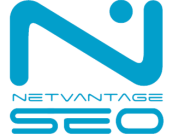Last Updated on January 5, 2018 by Adam Henige
There is always competition for prospective students when it comes to associates, undergraduate, and graduate degree programs. Higher education institutions all over the country spend millions of dollars trying to keep their admissions funnel full while attracting the best and brightest to their programs. We have managed several of these campaigns over the years. We have worked with community colleges, global MBA programs, undergraduate and certificate programs. We treat them much differently than a traditional private sector B2B or B2C campaign. If you are in the admissions or marketing department at a college and are looking to try paid search marketing here a few things to keep in mind.
Geography
Be mindful of using geo-targeting in your campaigns. Do you prospective students come from a certain area? Are you trying to break into new areas? If you are a community college, what is the longest distance a student will drive from? Is your program online? This should widen out your geographical footprint. These are important considerations, especially when allocating your budget.
Budget
And speaking of budget; the average cost per click rate varies drastically. It ranges from $10 to $50 per click for keywords. This spans across various degree types and programs. Be sure to do some keyword research and evaluate the available CPC data when determining your budget. Higher education is often one of the most expensive keyword sectors we manage. SEMRush often is a good tool to start with for this data.
Keyword Research and Match Types
When trying to decide on what keywords to bid on, you will likely start on your degree program names and types. However, be sure to use keyword match types. The reason for this is that Google may lump your degree related ads into very broad education categories and you won’t see qualified results. As an example, we once audited a campaign that used business schools as a broad match keyword. While it generated a lot of traffic, it resulted in very high bounce rates. An analysis of the actual search query report showed multiple impressions and clicks for the query school closings in Michigan. Obviously, this not ideal. Be sure to test out both modified broad as well as phrase match types with your keyword selection, degree programs, and areas of study.
Admissions Events
Due to high competition for a degree and related keywords, it is very hard or expensive to do a general awareness campaign. Additionally, these campaigns often generate a lot of school research, but not a lot of request for information forms completions or conversions because of where the prospective student may be in the admissions cycle. Utilizing admissions events can be a very effective PPC strategy for getting prospective students in front of your admissions counselors, especially if you have a tight budget.
When trying to attract prospects to an event, you can use your standard degree or program related keywords, such as marketing MBA programs. When focusing on your admissions event, your ad copy will stand out because it is time sensitive and specific. Your landing page should be an informational page about the event and has a clear path to registration. If you are a program with admissions officers that travel, a great strategy is to bid on general keywords in that specific geography where an event or fair may be taking place. Use a time window with the campaign leading up to the event of 10-21 days. On campus events can also be well suited for small run PPC campaigns to generate registrations. Finally, application deadlines present opportunities to create a sense of interest and urgency in ad copy. Retargeting can also be a great way to market your application deadlines to visitors who have already been to your site.
Goal Tracking and Application Third Party Integration
One of the challenges in measuring goals in higher education campaigns is tracking forms and application starts. Nearly every college or department uses some third party to capture, track and manage their prospective student referrals. We have seen those as common as Salesforce to customer built university IT solutions. The hard part is setting these up as goals or conversions in Google Analytics or AdWords because once a form is filled out it is often treated as an exit. Be aware of these challenges before launching your campaign, and be ready to work with your IT team and third party vendor to find a solution. Keep in mind that sometimes the workaround is onclick event tracking in Google Analytics.
Using PPC as a marketing channel can be very effective. However, with the rising cost per click in keywords across the board in higher education, it is critical to managing your campaigns strategically. Good luck getting your students!

Leave a Reply